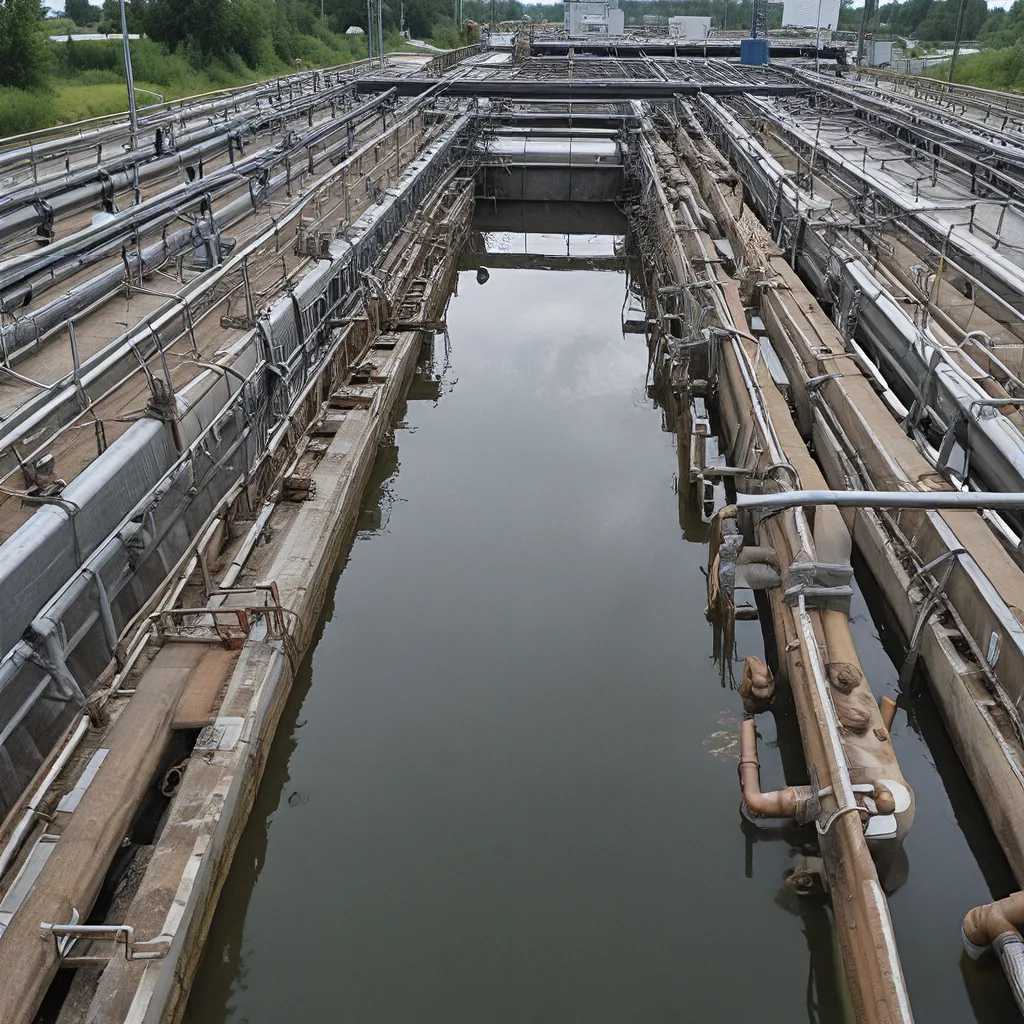
As the world grapples with the ever-evolving challenges of the 21st century, the wastewater treatment industry finds itself at a critical juncture. Climate change, urbanization, and the increasing demand for sustainable water management have converged, pushing this vital sector to seek innovative solutions. And in the midst of this transformation, a new wave of digital technologies is sweeping through, offering the promise of greater efficiency, enhanced resilience, and a more connected, sustainable future.
Unlocking the Potential of Industry 4.0
The Fourth Industrial Revolution, commonly known as Industry 4.0, is redefining the way we approach wastewater treatment. This technological paradigm shift encompasses advancements in areas such as the Internet of Things (IoT), augmented reality (AR), virtual reality (VR), and digital twin technology. By embracing these cutting-edge tools, wastewater treatment providers are not only streamlining their operations but also positioning themselves to tackle the complex challenges of the 21st century.
Jacobs, a global engineering and consulting firm, has been at the forefront of this digital transformation. With their deep domain expertise and commitment to innovation, they have developed a suite of digital solutions that are revolutionizing the way wastewater is managed.
Harnessing the Power of Digital Twins
One of the most exciting advancements in the wastewater treatment industry is the rise of digital twin technology. These virtual replicas of physical systems, processes, or assets allow operators to simulate, monitor, and optimize their wastewater treatment facilities with unprecedented accuracy.
Jacobs’ Replica digital twin solution has been a game-changer in this space. By creating detailed process simulations of design and operational metrics, utilities can improve performance, reduce capital and operating costs, and make informed decisions that enhance the overall efficiency of their wastewater treatment systems.
Imagine being able to test different scenarios, experiment with process changes, and evaluate the impact of potential upgrades – all without disrupting the actual facility. This is the power of digital twins, and it’s revolutionizing the way wastewater treatment professionals approach their work.
Integrating IoT and Wearable Technology
Another area where the wastewater industry is embracing digital transformation is in the integration of IoT and wearable technology. By deploying a network of connected sensors and devices, operators can gather real-time data on everything from water quality to asset performance, providing unprecedented visibility into the inner workings of their facilities.
Jacobs’ internally-developed ion IoT platform is a prime example of this integration in action. This centralized platform not only collects data from various IoT sensors but also provides advanced data visualization and analytics, empowering wastewater treatment professionals to make data-driven decisions that enhance efficiency, safety, and environmental compliance.
Moreover, the integration of wearable technology is revolutionizing the way workers interact with their environments. From smart hard hats to connected safety vests, these devices can track employee movements, monitor vital signs, and even provide real-time feedback on potential hazards, ultimately improving worker safety and overall operational efficiency.
Embracing Augmented and Virtual Reality
The wastewater treatment industry is also leveraging the power of augmented reality (AR) and virtual reality (VR) to enhance training, maintenance, and field operations. These immersive technologies are proving to be invaluable tools in a sector where hands-on experience and attention to detail are paramount.
Jacobs’ deployment of AR and VR solutions for digital health and safety training is a prime example of how these technologies are transforming the industry. By offering gamified, interactive training experiences, utilities can ensure their workforce is better prepared to handle complex tasks, mitigate risks, and respond effectively to emergencies.
But the applications of AR and VR go beyond training. Maintenance crews can use these technologies to visualize and interact with equipment in a virtual environment, reducing the need for on-site visits and minimizing disruptions to ongoing operations. And in the field, AR-enabled devices can provide real-time guidance, access to critical information, and even remote expert support, enhancing the efficiency and effectiveness of field operations.
Embracing the Digital Journey
As the wastewater treatment industry continues to navigate the complexities of the 21st century, the adoption of digital technologies is no longer a choice, but a necessity. By embracing Industry 4.0 and the transformative power of innovations like digital twins, IoT, and AR/VR, wastewater treatment providers can unlock new levels of efficiency, resilience, and sustainability.
At Alpha Wastewater, we understand the importance of this digital transformation. Our team of experts is committed to staying at the forefront of the industry, leveraging cutting-edge technologies to deliver exceptional services and help our clients future-proof their operations.
But the journey toward a digitally-enabled wastewater treatment industry is not without its challenges. As we navigate this uncharted territory, we must remain adaptable, collaborative, and open to learning. By working together, sharing knowledge, and embracing the spirit of Industry 4.0, we can create a more sustainable, resilient, and connected future for our communities and the planet as a whole.